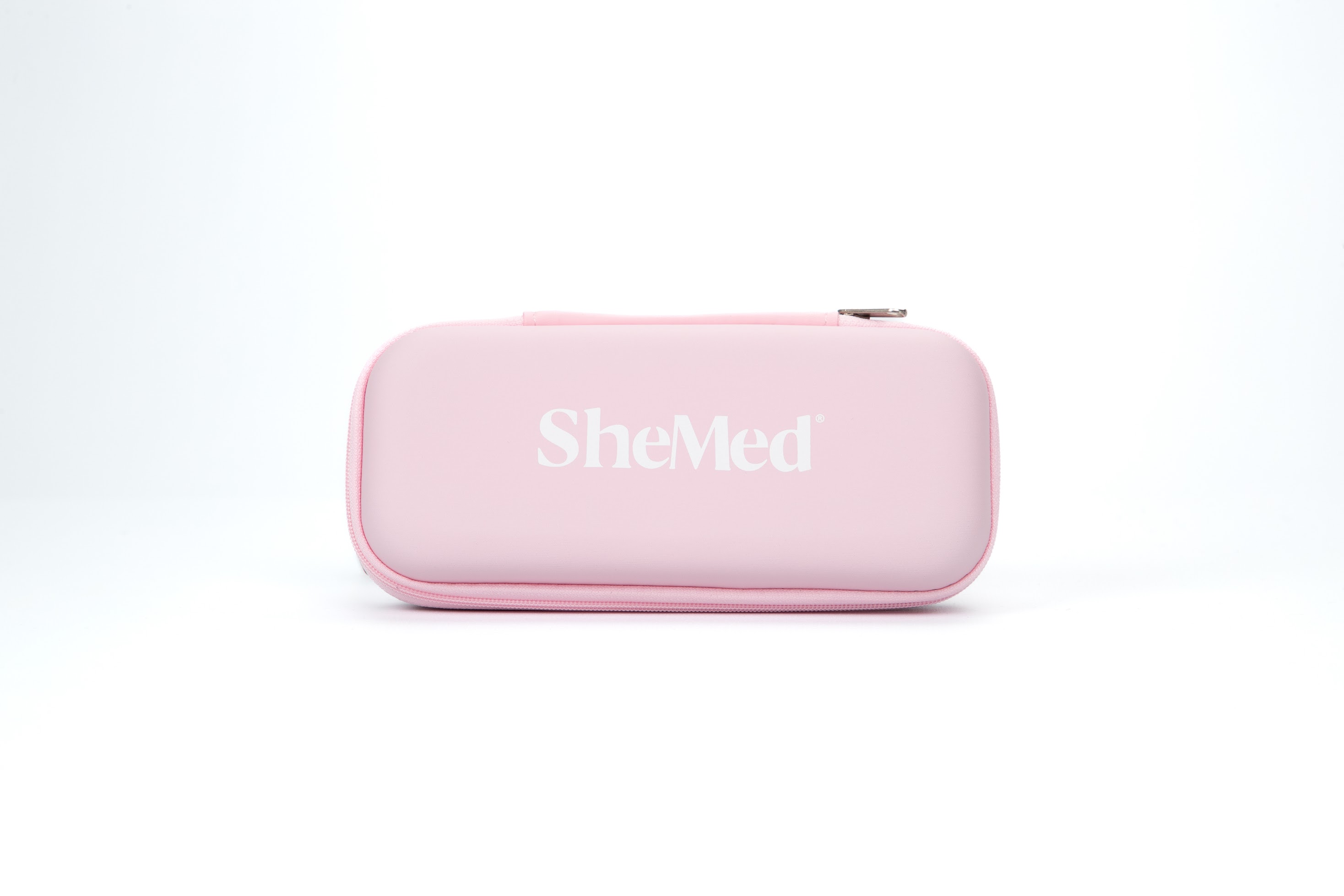
Have you ever worried about how to manage your Mounjaro or Wegovy injections while traveling? Whether you’re planning a relaxing beach vacation, a work trip, or visiting family, staying on track with your medication routine can feel like an added challenge. You might wonder: How do I store my pen safely while on the move? Can I take it on a plane? What if I forget a dose or experience side effects while away from home?
The good news is that with a little planning, you can travel confidently while keeping up with your GLP-1 therapy. Many people successfully travel with medications like Mounjaro and Wegovy every day, and with the right preparation, you can too. Whether you’re flying, driving, or taking a train, understanding how to properly pack, store, and transport your medication will give you peace of mind and ensure your treatment stays on track.
You’ve worked hard to build healthy habits—travel shouldn’t disrupt your progress. With a few smart strategies, you can focus on your journey and create great memories without worrying about your medication. Let’s dive in and make your next trip smooth, stress-free, and enjoyable!
Travelling with Injectable Medications
Travelling with injectable medications requires proactive planning to avoid disruptions to your treatment. Here are some essential tips:
- Pack Medications in Carry-On Luggage: Always keep your medication in your carry-on bag to prevent loss or damage. Checked luggage may be subject to extreme temperatures and handling risks, potentially compromising the integrity of temperature-sensitive medications.
- Keep Original Prescriptions and Medical Records: Carry a copy of your prescription and a summary of your medical history. This documentation is useful in case of questions from airline security, customs officials, or healthcare providers at your destination.
- Request a Doctor’s Note: A letter from your doctor explaining the need for your medication and its administration (including the use of needles) can help streamline interactions with airline staff or customs.
Specific Considerations for GLP-1 Agonists
Temperature Sensitivity
Both Mounjaro and Wegovy are temperature-sensitive and must be stored correctly to remain effective. For short trips, the medications can remain unrefrigerated at room temperature (below 30°C or 86°F) for up to 21 days (Mounjaro) or 28 days (Wegovy), but refrigeration is preferred. Use cooling packs or insulated travel bags designed for medical supplies. Ensure that these maintain the medication's required temperature range without freezing it.
Transportation of Injectable Medications
Check airline regulations regarding travelling with medication pens or injectable medications. Typically, carrying them with the corresponding prescription avoids issues. Use a sharps container or an alternative hard plastic container to safely store used needles until proper disposal.
International Travel with GLP-1 Agonists

When crossing international borders, be prepared for scrutiny regarding medications, especially injectable ones. Declare medications to customs officials. Transparency is key. Inform customs agents about your medication, showing them your prescription and doctor’s note if needed. Be ready for questions. Some countries have strict regulations regarding prescription drugs.
For example, while GLP-1 agonists are generally allowed, they may be restricted in certain regions due to local laws. Check the specific rules of your destination country in advance. For extended trips, it may not be feasible to carry the entire supply of your medication. Shipping can be a viable alternative. If you are travelling within the country then you can ask your provider to ship to the new location. International shipment may not be allowed.
Adjusting Dosing Schedules for Time Zone Changes
Travelling across time zones can disrupt your usual dosing routine. To avoid missed doses or overlapping injections. Consult your healthcare provider. Seek advice on how to adjust your schedule when crossing multiple time zones. Minor timing variations are often acceptable, but consistency is crucial. Set reminders, use alarms or mobile apps to stay on track with your dosing schedule.
Managing Potential Side Effects While Travelling
GLP-1 agonists can cause side effects such as nausea, diarrhoea, or fatigue. These can be particularly challenging during travel. Plan for rest periods. Incorporate downtime into your itinerary to accommodate any side effects. Pack over-the-counter remedies. Bring anti-nausea medication, rehydration salts, and other essential items to manage mild symptoms. Stay hydrated and eat mindfully. Dehydration and large, heavy meals can exacerbate side effects. Opt for smaller, balanced meals and maintain hydration throughout your journey.
Packing Tips for Medications
- Insulated Medication Bag: These bags help maintain temperature stability during transit.
- Backup Supplies: Pack extra, alcohol swabs, and a spare pen or vial of medication, if permitted.
- Sharps Disposal Container: For used needles, a portable sharps container is essential to ensure proper disposal.
Organising Medications:
Use a medication organiser to separate your daily doses. Label all items clearly, including your name, dosage instructions, and emergency contact information.
Safe Disposal of Used Needles While Travelling
- On-Site Disposal: Many hotels and airports offer disposal bins for medical waste. Check with staff at your destination for access.
- Portable Sharps Containers: These are available at most pharmacies and can be carried during travel.
- Follow Local Regulations: Some countries have strict guidelines for medical waste disposal. Be aware of and comply with these rules to avoid fines or legal issues.
Maintaining Healthy Habits While Travelling
While travelling, it's easy to fall out of your usual health routine. Here are some tips to maintain your overall well-being:
- Stick to Balanced Meals: Choose meals that align with your weight loss or diabetes management plan. Opt for whole grains, lean proteins, and plenty of vegetables when dining out.
- Stay Active: Incorporate light physical activities into your travel schedule, such as walking tours or hotel gym workouts.
- Monitor Blood Sugar Levels: For those with diabetes, monitor your blood sugar more frequently to account for changes in routine or diet.
Checklist for Travelers Using Mounjaro or Wegovy
- Medication/Wegovy pen
- Prescription and doctor's note
- Insulated medication bag with cooling packs if unopened
- and alcohol swabs
- Sharps disposal container
- Travel insurance with medical coverage
- Contact information for local healthcare providers
Conclusion
Traveling with Mounjaro or Wegovy may seem daunting at first, but with a little preparation, it can be a smooth and stress-free experience. By planning ahead—whether it’s packing your medication properly or adjusting your dosing schedule for time zone changes—you can stay on track with your treatment while enjoying your trip.
Remember to store your medication at the correct temperature, carry it in your carry-on luggage when flying, and bring any necessary supplies, including alcohol swabs and a sharps container. If you have any concerns, checking with your healthcare provider before you travel can provide extra reassurance.
Most importantly, don’t let managing your medication hold you back from making the most of your travels. With the right strategies in place, you can confidently stick to your routine while focusing on what truly matters—enjoying your journey, exploring new places, and making great memories.
If you’re ready to take the next step then check your eligibility at Shemed today. Our team is here to provide guidance, support, and resources tailored to your unique needs.
FAQs
1. Can I take Mounjaro or Wegovy on a plane?
Yes, you can. Keep the medication in its original packaging, along with your prescription or doctor's note. Carry it in your hand luggage, as checked bags can be too warm or cold.
2. Do Mounjaro or Wegovy need refrigeration while travelling?
Yes, before use, both medications should be kept refrigerated (2°C–8°C). When travelling, use a medical-grade cooler bag. They can stay unrefrigerated for a limited time—check the manufacturer’s guidelines (usually up to 6 weeks at room temp for once opened). Do not freeze either medication, and avoid temperatures above 30°C.
3. What if I miss a dose while travelling?
If you miss your usual injection day, take it as soon as you remember—as long as it’s within 4 days. After that, skip it and take the next dose on your scheduled day. Never double up.
4. Can I travel internationally with Mounjaro or Wegovy?
Yes, but check the destination country’s regulations about carrying injectable medications and needles. It is recommended to carry a letter from your doctor or prescription and declare it at customs if required.
References
- Centers for Disease Control and Prevention (CDC). (n.d.). Travel abroad with medicine. Retrieved from https://wwwnc.cdc.gov/travel/page/travel-abroad-with-medicine
- DailyMed. (2023). Wegovy (semaglutide) injection, solution: Prescribing information. Retrieved from https://dailymed.nlm.nih.gov/dailymed/drugInfo.cfm?setid=ee06186f-2aa3-4990-a760-757579d8f77b
- Government of Canada. (n.d.). Travelling with medication. Retrieved from https://travel.gc.ca/travelling/health-safety/medication
- Harvard Global Support Services. (n.d.). Tips for traveling with medication. Retrieved from https://www.globalsupport.harvard.edu/travel/advice/tips-traveling-medication
- NHS England. (2023). NHS clinical waste strategy. Retrieved from https://www.england.nhs.uk/long-read/nhs-clinical-waste-strategy/
- TravelHealthPro. (n.d.). Medicines and travel. Retrieved from https://www.travelhealthpro.org.uk/factsheet/43/medicines-and-travel
- NHS Fit for Travel. (n.d.). Travelling with medicines. Retrieved from https://www.fitfortravel.nhs.uk/advice/general-travel-health-advice/travelling-with-medicines
Take charge of how you look and feel.
Backed by science. Guided by experts.
SheMed’s medical weight loss programme combines expert care and science-backed treatment to help you feel and look your best — for life.
SheMed’s medical weight loss programme combines expert care and science-backed treatment to help you feel and look your best — for life.
The content on the SheMed blog is provided for general informational and educational purposes only. While SheMed provides professional weight loss services and strives to ensure the information shared is accurate and up to date, we make no representations or guarantees as to its accuracy, completeness, or timeliness. This content should not be taken as personal medical advice or a substitute for consultation with a qualified healthcare provider. Always speak with your doctor or licensed medical professional about your individual health or medical needs before starting any new treatment or programme. Never disregard or delay seeking professional medical advice because of something you have read on this site. SheMed is not responsible for any actions you may take based on the information provided in this blog.
Subscribe to our Newsletter
Thank you! Your submission has been received!
Oops! Something went wrong while submitting the form.


